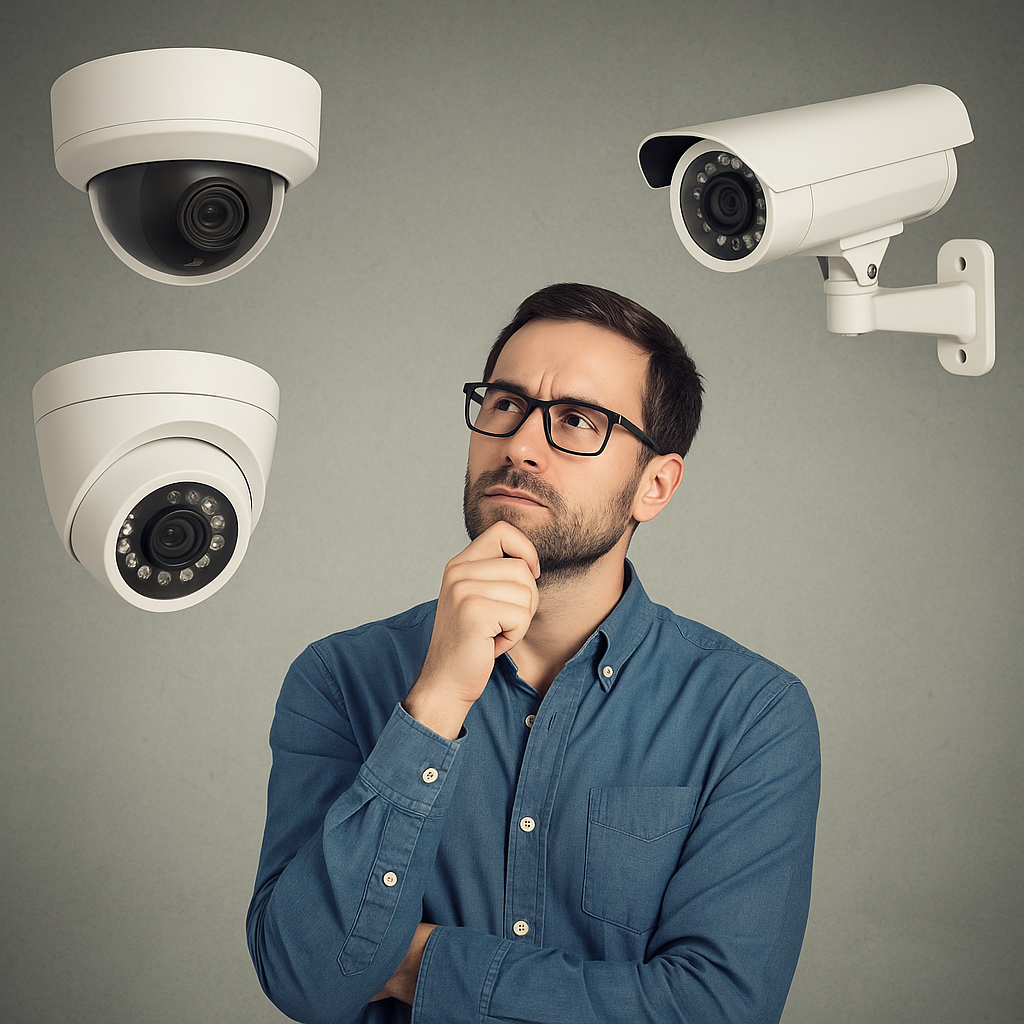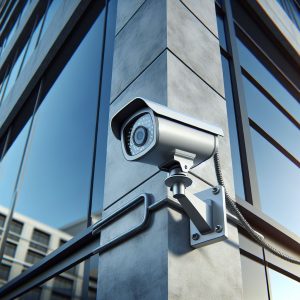Introduction
Closed-Circuit Television (CCTV) systems have become an essential tool for ensuring safety, security, and peace of mind for both residential and commercial properties. With crime rates fluctuating and the need for real-time monitoring growing, investing in a quality CCTV system is no longer a luxury—it’s a necessity. But with an overwhelming number of options in the market, selecting the right system can be confusing and even daunting. This comprehensive guide aims to help you understand how to choose the best CCTV system tailored to your specific needs.
1. Understanding Your Surveillance Goals
Before diving into technical specifications and brands, it’s crucial to identify what you want to achieve with your CCTV system. Ask yourself the following questions:
- Do you need it for home or business?
- Is it for crime prevention, evidence collection, or both?
- What areas do you need to cover?
- Do you need remote access or local-only monitoring?
- Will the system operate 24/7 or only at certain times?
Clearly defined goals will guide your choices in terms of camera types, features, and system architecture.
2. Types of CCTV Cameras
There are various types of CCTV cameras, each suited for different environments and objectives. Understanding the pros and cons of each can help you make an informed decision.
A. Dome Cameras
- Best For: Indoor surveillance
- Features: Vandal-resistant, discreet appearance
- Pros: 360-degree rotation, unobtrusive
- Cons: Limited range compared to bullet cameras
B. Bullet Cameras
- Best For: Outdoor long-range monitoring
- Features: Long, cylindrical shape
- Pros: Visible deterrent, excellent range
- Cons: More vulnerable to vandalism
C. PTZ (Pan-Tilt-Zoom) Cameras
- Best For: Large areas like parking lots and warehouses
- Features: Remote control for movement and zoom
- Pros: Highly flexible, covers wide areas
- Cons: More expensive, requires monitoring
D. Turret Cameras
- Best For: Residential and commercial settings
- Features: Ball-and-socket design
- Pros: Easy to adjust, night vision capable
- Cons: May require extra protection outdoors
E. Wireless IP Cameras
- Best For: Modern homes and offices
- Features: Uses Wi-Fi, app-controlled
- Pros: Easy to install, mobile access
- Cons: Dependent on internet connection
3. Camera Features to Consider
To ensure your CCTV system performs effectively, you’ll need to evaluate essential features that impact functionality and performance:
A. Resolution
- Common Options: 720p, 1080p (Full HD), 4MP, 4K
- Higher resolution provides clearer images and better facial or license plate recognition.
B. Field of View (FOV)
- Measured in degrees, a wider FOV allows a single camera to cover more area.
C. Night Vision
- Essential for 24/7 surveillance. Choose between:
- Infrared (IR) night vision
- Color night vision
- Thermal imaging (for advanced needs)
D. Motion Detection
- Helps conserve storage and bandwidth
- Can trigger alerts or recording only when movement is detected
E. Two-Way Audio
- Useful for intercom or deterrent functions, especially in doorbell and entry cameras
F. Weather and Vandal Resistance
- Look for IP66 or higher-rated cameras for outdoor use
- IK10-rated enclosures provide high impact resistance
4. DVR vs. NVR Systems
A. DVR (Digital Video Recorder)
- Works with analog cameras via coaxial cable
- Pros: Cost-effective, easier upgrades
- Cons: Lower video quality, limited remote access
B. NVR (Network Video Recorder)
- Works with IP cameras using Ethernet cables
- Pros: Higher video quality, easy to scale, remote access
- Cons: More expensive upfront, network dependency
5. Storage and Data Management
A. Local Storage
- Stored on hard drives in DVR/NVR or SD cards
- Pros: More secure, no internet needed
- Cons: Risk of damage or theft
B. Cloud Storage
- Stored on remote servers
- Pros: Remote access, off-site security
- Cons: Requires monthly fees, privacy concerns
C. Storage Capacity
- Measured in terabytes (TB); 1 TB can store ~10–15 days of HD footage from 4 cameras
- Choose systems with overwrite or auto-delete options
6. Remote Access and Mobile Integration
Today’s users often require real-time access via smartphones or PCs. Ensure the system offers:
- A reliable mobile app
- Multi-user access control
- Live streaming and push notifications
- Compatibility with Android, iOS, and desktop browsers
7. Scalability and Integration
If you anticipate expanding your system in the future:
- Choose systems that support additional channels (e.g., 8-, 16-, or 32-channel NVRs)
- Ensure compatibility with third-party cameras or software
- Consider integration with other smart devices like alarms, smart locks, and lighting
8. Installation Considerations
A. DIY vs. Professional Installation
- DIY: Budget-friendly, good for tech-savvy users, especially with wireless systems
- Professional: Ideal for large or complex setups, ensures optimal placement
B. Wiring and Power
- Wired systems need proper routing of cables and power supplies
- PoE (Power over Ethernet) simplifies wiring by using one cable for both power and data
9. Cost Considerations
Pricing varies based on features, number of cameras, and brand. Budget for:
- Camera units ($30–$300 each)
- DVR/NVR ($100–$500)
- Installation fees ($200–$2,000)
- Optional cloud storage or software licenses
While it may be tempting to cut costs, prioritize reliability and security over price alone.
10. Brand Reputation and Customer Support
Choose trusted manufacturers with good warranties, technical support, and online resources. Leading brands include:
- Hikvision
- Dahua
- Arlo
- Reolink
- Swann
- Lorex
Read user reviews and check for compatibility issues before purchasing.
11. Legal and Ethical Considerations
Depending on your country or region, there may be laws regarding:
- Notification of CCTV presence
- Limitations on audio recording
- Data protection and privacy rights
For instance, the GDPR in Europe and various data protection laws in other countries require disclosure and responsible data handling.
Conclusion
Choosing the best CCTV system involves a careful evaluation of your security goals, property layout, desired features, and budget. A well-planned system not only deters criminal activity but also provides peace of mind through real-time monitoring, evidence collection, and remote access.
Remember, the best CCTV system is the one that meets your specific needs—whether it’s a few indoor cameras for your home or an enterprise-grade networked solution for your business. By considering the types of cameras, features, storage options, and scalability, you can make a smart investment that protects what matters most.
Secure Your Home and Business with Garrison Alarms!
Experience unmatched safety with Garrison Alarms – your trusted partner in cutting-edge home and business security solutions. With over 35 years of experience, we offer expert installation, state-of-the-art technology, and personalized security strategies tailored to your unique needs.
Our Services Include:
- Home & Business Alarms: Maximize security with our advanced wired and wireless alarm systems.
- CCTV Systems: Protect your property with high-resolution, 4K HD, and color night vision cameras.
- Access Control: Secure your premises with keypad entry, biometric solutions, and more.
- Alarm Monitoring: 24/7 monitoring to ensure your safety and peace of mind.
Why Choose Garrison Alarms?
- Expert & Professional Service: Our licensed technicians provide top-notch installation and support.
- Customer Satisfaction: We prioritize your security and satisfaction with a focus on quality and reliability.
- Affordable Pricing: Get the best security solutions at competitive prices.
Get a FREE Quote Today! Visit Garrison Alarms or call us at 09 520 4875 to learn more and secure your property today!
Garrison Alarms – Your Safety, Our Priority




